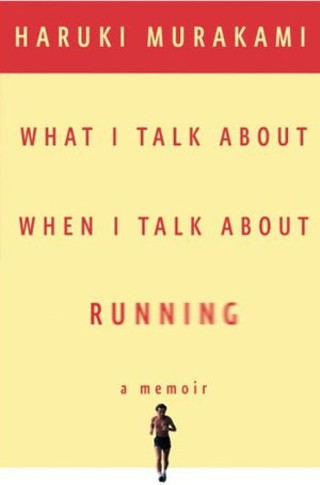What I Talk About When I Talk About Running: A Memoir
Run, Haruki, run, you skinny Howard Roark!
Reviewed by James Renovitch, Fri., Aug. 29, 2008

What I Talk About When I Talk About Running: A Memoir
by Haruki MurakamiKnopf, 180 pp., $21
The difference to note between Murakami's second foray into nonfiction and the Raymond Carver short story from which it gets its name – "What We Talk About When We Talk About Love" – is not just the obvious topic change but the movement from "we" to "I." Not so strange for a memoir, as Running tackles life, long-distance running, aging, and writing and remains centered on the author's own experiences. These topics serve as vehicles for the author's past, present, and future but never converge to form a coherent message or even a thesis for readers to take with them.
Not that a bumper-stickerized slogan at the end would make for a better read. However, a little continuity can go a long way for something that sits on the page like a training log at times. In a lesser writer's hands, this narrative structure would be excruciating. Murakami maintains his exquisite ear for characters' inner monologues (as evidenced in the brilliant The Wind-Up Bird Chronicle) and the inner workings of a nation's collective consciousness (see Underground: The Tokyo Gas Attack and the Japanese Psyche), this time turning on himself his talent for seeing what lies beneath. That alone lends the book more than a couple of insights into the author's mind – insights that often translate as revelations to the reader, especially if that reader runs or writes.
But without that tangible connection to the subject matter (and sometimes even with it), Running feels a bit disjointed and hard to follow. "Memoir" might be a misnomer: Murakami himself calls the endeavor "essays," and I'd feel better about the book if it were a group of themed essays like Underground. Instead, parallel narrative arcs mold the segments forcibly into a memoir's structure. One arc follows his training for the New York City Marathon; the other his life story from the decision to become a writer to present day. After a regimen of yearly marathons and triathlons with a 62-mile ultramarathon thrown in for good measure, Murakami finds his times suffering while his training regimens remain the same. Could be that he was 57 years old, but our hero is not going down without a fight. Is this what a three-quarter-life crisis looks like?
Ultimately Murakami reveals himself to be a skinny Howard Roark, inspired to do what he does and refusing to alter his trajectory or apologize for it. And like Roark, this makes him a noble and rugged individualist worthy of admiration and, at times, an interminable tool. A man who decides he can write a novel on a whim and goes on to produce award-winning literature gets points for gumption, but when he talks about being able to take daily power naps and train for hours a day, every seeming complaint about his life's direction makes him less likable.
One hopes to take from a memoir something he can apply to his own life: an adage, a better understanding of self, something. Instead you're left with some less than inspiring thoughts on running and a hole where the author's motives should be. In the end you have a project by Murakami, about Murakami, and, ultimately, for Murakami.
A Second Opinion (by the Same Guy)
Usually I leave the personal angle to my blog posts, but the fact that this book dug me out of a runner's hiatus is worthy of mention. What I Think About may be an underwhelming read, but here are some examples of Murakami's bull's-eye observations:
"I run in a void." Yes! This line alone made the book not entirely regrettable. Finally, an explanation as to why music sounds so good when running: There's nothing else going on upstairs. This might explain why I tend to trip and fall so much.
"Pain is inevitable. Suffering is optional." This brand of mantra makes me gag, but that doesn't make it less true. The idea of a runner's high always eludes nonrunners and is as simple as the end of pain. Long-distance running is long-distance pain, and when that duration of pain subsides of your own volition, feeling "normal" never felt so good.
"Most runners run not because they want to live longer, but because they want to live life to the fullest." I saw this on a T-shirt as, "I don't run to live longer; I live to run longer." Or was it, "I don't run to add years to my life; I run to add life to my years"? Ugh! I run to avoid statements like all of the above.












